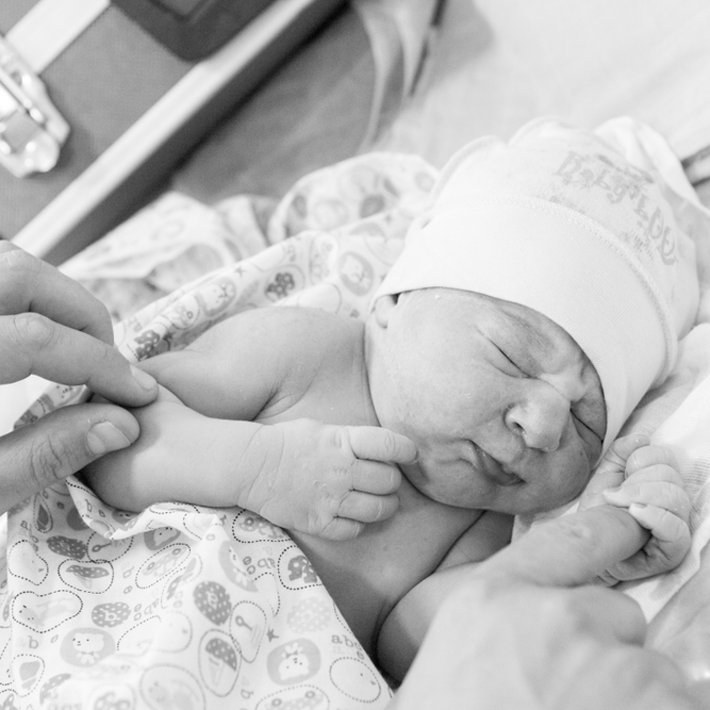Giving Birth to a Healthy Child Means Giving Up Alcohol AND Marijuana Prior to Conceiving

Given the increasing marijuana legalization campaign and the rise of the medical marijuana industry, some expecting mothers may feel that it is okay to consume cannabis products during pregnancy. Some may look to cannabis to alleviate morning sickness, thinking it's a better solution than a pharmaceutical product or other alternatives.
As for alcohol, given the growing normalization of alcohol consumption in the United States, some mothers-to-be may think it's okay to drink alcohol “in moderation” during their pregnancy.
Neither cannabis use nor alcohol consumption is safe during pregnancy. Mothers-to-be should refrain from using marijuana and alcohol before, during, and after pregnancy.
Marijuana Use During Pregnancy and its Effect on Fetal Brain Development
Pregnant mothers should not consume marijuana, not for any reason. They should also not be using marijuana leading up to conception, or after their pregnancy either. According to research published by the National Sleep Foundation, children exposed to marijuana while in the womb are far more likely to suffer from sleep disorders than children who are not exposed to cannabis while in the womb.
A healthy night's sleep is crucial for any human being at any stage of life, but it is absolutely essential for children and adolescents. Sleep disorders during one's childhood can lead to severe and long-term health effects, potentially halting certain aspects of the child's development and even causing permanent harm.
“As a society, it took us a while to understand that smoking and drinking alcohol are not advisable during pregnancy, but it is now seen as common sense. Studies like this suggest that it is prudent to extend that common-sense advice to cannabis,
even if use is now legal...”
According to senior study author John Hewitt, director of the Institute for Behavioral Genetics at CU Boulder, “As a society, it took us a while to understand that smoking and drinking alcohol are not advisable during pregnancy, but it is now seen as common sense. Studies like this suggest that it is prudent to extend that common-sense advice to cannabis, even if use is now legal. Mothers who said they had used cannabis while pregnant were significantly more likely to report their children having clinical sleep problems.”
Alcohol Use During Pregnancy Increases Risk for Miscarriage
According to a study done by the Vanderbilt University Medical Center and published in the American Journal of Obstetrics and Gynecology, each week that a woman uses alcohol during the first five to ten weeks of pregnancy is associated with an incremental eight percent increase in the risk of miscarriage.

That is a concerning revelation, a stark reminder of why expecting mothers must abstain from alcohol completely. Simply cutting back on alcohol consumption is insufficient. The study indicated that the cumulative eight percent increase in risk does not significantly change whether the mother-to-be is having just one drink per week or several. The type of alcohol being consumed also does not influence miscarriage risk. Simply the existence of alcohol in the mother's body presents a significant risk, hence why moms-to-be should abstain from all alcohol consumption throughout her pregnancy.
“Abstaining from alcohol around conception or during pregnancy has long been advised for many reasons, including preventing fetal alcohol syndrome. Nonetheless, modest levels of consumption are often seen as likely to be safe. For this reason, our findings are alarming. Levels of use that women, and some care providers, may believe are responsible are harmful, and no amount can be suggested as safe regarding pregnancy loss.”
Katherine Hartmann, MD, Ph.D., and the vice president for Research Integration at Vanderbilt University Medical Center, commented on the study's findings. “Abstaining from alcohol around conception or during pregnancy has long been advised for many reasons, including preventing fetal alcohol syndrome. Nonetheless, modest levels of consumption are often seen as likely to be safe. For this reason, our findings are alarming. Levels of use that women, and some care providers, may believe are responsible are harmful, and no amount can be suggested as safe regarding pregnancy loss.”
Fetal Alcohol Syndrome
Fetal Alcohol Syndrome, or FAS, is a congenital condition caused by alcohol consumption during pregnancy. FAS is characterized by varying degrees of dulled mental development of the child and stunted or altered physical growth, particularly of the skull, face, and eyes.
While FAS generally does not occur in infants unless the mother drinks alcohol during pregnancy, and any amount of drinking during pregnancy presents risk.
Estimations of the prevalence of FAS births ranges considerably. Anywhere from 0.2 to 1.5 births for every 1,000 births are infants born with FAS.
Neonatal Abstinence Syndrome
Neonatal Abstinence Syndrome is defined as a congenital condition in which a fetus is exposed to opioid drugs. NAS can result in a range of health problems for newborns, including withdrawal symptoms and developmental issues.
According to the Centers for Disease Control and Prevention, incidences of NAS are increasing sharply, more or less in line with the soaring opiate epidemic in America. From 2004 to 2014, for example, incidence of NAS increased by 433%. In 2004, there were only about 1.5 NAS births for every 1,000 births. By 2014, there were 8 NAS births for every 1,000 births. If eight babies are born with NAS for every 1,000 births in the U.S., that means a baby is born addicted to opiates every fifteen minutes.
The Importance of Abstaining from All Substances Before, During, and After Pregnancy
The key to giving birth to a healthy baby comes in so many ways from maintaining a healthy lifestyle while pregnant. But it goes beyond that even. Expecting moms and dads alike should cease all drug and alcohol use well before trying to conceive. They should then continue their drug-free and alcohol-free behavior through the pregnancy and after, ensuring not to expose their baby to addictive substances.
There is no room for drugs or alcohol in a healthy family.
If someone you care about is hoping to get pregnant but is using drugs and alcohol, help them get off of drugs and alcohol first.
Please don't take no for an answer, and be persistent until they are willing to seek help. A potential mother or father should address their substance abuse before having a child. And if they cannot cease using marijuana, alcohol, or any other mind-altering substance on their own, do your best to help them enter a residential drug treatment center before they get pregnant. A drug rehab like Narconon will help them address and resolve the underlying issues that were causing them to misuse substances in the first place.
When an aspiring parent attends addiction treatment, they will walk out of the treatment center clean and sober. At that point, they'll be ready to move on to their child-rearing adventure. They'll finally be in a position to be the best parent they truly can be. Addictive substances will no longer hinder them.
Sources:
- https://www.sciencedirect.com/science/article/abs/pii/S2352721820301352?via%3Dihub
- https://www.sciencedaily.com/releases/2020/07/200702153700.htm
- https://linkinghub.elsevier.com/retrieve/pii/S0002937820307250
- https://www.sciencedaily.com/releases/2020/08/200810102430.htm
- https://www.cdc.gov/ncbddd/fasd/data.html#:~:text=Using%20medical%20and%20other%20records,areas%20of%20the%20United%20States.&text=The%20most%20recent%20CDC%20study,to%209%20years%20of%20age.
- https://www.cdc.gov/mmwr/volumes/68/wr/mm6801a2.htm#:~:text=From%202004%20to%202014%2C%20the,the%20United%20States%20(1).


 ®
®